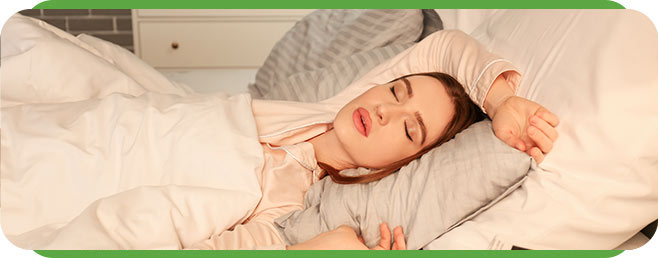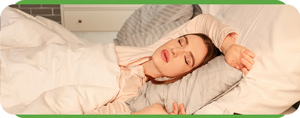At-Home Sleep Test in Dunlap, IL
Koala Center For Sleep & TMJ Disorders offers the convenience of a sleep test at your home. It is more convenient than going overnight for a clinic study, less expensive, easier on the patient, and provides a more realistic representation of a patient’s typical nights’ sleep at home. For more information, contact us or book an appointment online. We serve patients from Peoria/Dunlap IL, and surrounding areas.


Table of Contents:
Can a sleep test be done at home?
How long do I need to sleep for an at home sleep test?
What if I couldn’t sleep during my sleep study?
What not to do before a sleep study?
In many cases, a sleep test can be conducted in the comfort of your own home. Home sleep tests, also known as portable sleep monitors, are designed to evaluate your sleep patterns and screen for potential sleep disorders without requiring an overnight stay at a sleep center.
The home sleep test process is simple and convenient. You’ll be provided with a portable device that includes sensors to measure parameters such as breathing patterns, oxygen levels, heart rate, and movement. You’ll wear the device while you sleep, following the instructions provided. Once you’ve completed the test, you’ll return the device to the sleep center for analysis.
When undergoing an at-home sleep test, the recommended duration of sleep varies depending on the specific test and the instructions provided by your healthcare provider. Typically, you will be advised to sleep with the portable monitoring device for 1 or 3 nights to gather sufficient data for analysis.
The exact duration of sleep required for the test will be communicated to you by the healthcare professional overseeing your evaluation. The specialist will provide specific instructions on when to begin wearing the device, how to position the sensors, and when to remove it in the morning.
It’s essential to follow the instructions provided to ensure accurate and valuable results. Remember to maintain your regular sleep routine as much as possible during the test. Aim for a sufficient amount of sleep to feel well-rested and represent your typical sleep patterns. By adhering to the recommended duration and following the instructions carefully, you can ensure reliable data is obtained. This data will support the evaluation of your sleep health and diagnosis of sleep disorders.
If you had difficulty falling asleep during your at-home sleep study, there’s no need to worry. It’s not uncommon for individuals to experience sleep difficulties while wearing monitoring devices. Rest assured that valuable information can still be obtained from your sleep study, even if you didn’t get a full night’s sleep.
Data collected during your sleep, even if it’s for a shorter duration, can still provide valuable insights into your sleep patterns and potential sleep disorders. Sleep specialists are trained to analyze and interpret the available data to make an accurate assessment of your sleep health. If you found it challenging to sleep during the study, it’s helpful to communicate this to the healthcare provider afterward. They will offer guidance and support and may recommend repeating the study if necessary.
To ensure accurate results and a successful home sleep study, it’s important to follow some guidelines and avoid certain activities before your scheduled test. Here’s what to consider before a home sleep study:
– Avoid stimulants – Refrain from consuming large amounts of caffeine or other stimulants, such as those found in energy drinks, as they often make it difficult to fall asleep.
– Avoid interfering with your sleep schedule – Do not take long naps during the day as they can interfere with your regular sleep-wake cycle and make it more difficult to fall asleep at the time set aside for the sleep study.
– Minimize alcohol and sedative use – Avoid alcohol and sedatives on the night of your sleep study. These substances can affect your sleep patterns and impact the accuracy of the results.
– Don’t make major changes to your routine – Try to maintain your regular sleep routine leading up to the study. Making significant changes, such as drastically altering your bedtime or wake-up time, can affect your sleep patterns and data accuracy.
– Avoid big meals and excessive fluid intake – Refrain from consuming heavy or rich meals before the study, as they can cause discomfort and interfere with sleep. Additionally, limit your fluid intake close to bedtime to minimize the need for frequent bathroom visits.
For more information about our home sleep test, feel free to call us. Our clinic is conveniently located at 11825 N. State Route 40, Suite 100, Dunlap, IL 61525. We serve patients from Dunlap IL, Bellevue IL, Pottstown IL, West Peoria IL, East Peoria IL and surrounding areas.

Additional Services You May Need
▸ KoalaKIDZzz®
▸ Sleep Apnea
▸ Snoring
▸ TMJ Disorder
▸ Fatigue
▸ Sleep Disorders
▸ Weight Loss
▸ CPAP Alternative
▸ Oral Appliances




